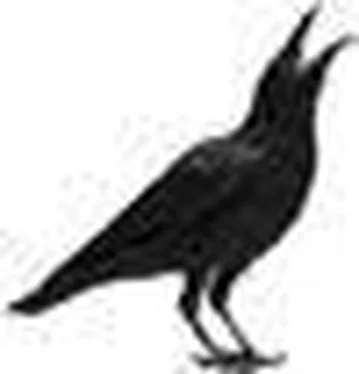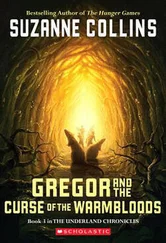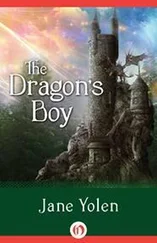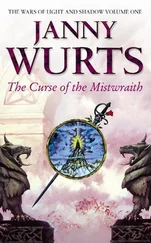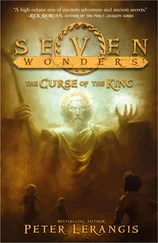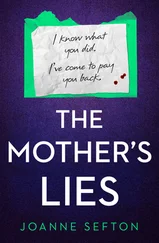I shivered. He did not sound like himself at all. I watched as his eyes darted back and forth, his gaze flitting over the ceiling, seeing something there that was beyond my power to see.
“It is called Atcen . . . Djenu . . . Outiko . . . Vindiko. It has a dozen names in a dozen lands, and it is older than the hills, Will Henry. It feeds, and the more it feeds, the hungrier it becomes. It starves even as it gorges. It is the hunger that cannot be satisfied. In the Algonquin tongue its name literally means ‘the one who devours all mankind.’
“You are young,” the monstrumologist said. “You have yet to hear it call your name. But from the moment it knows you, you are doomed. Doomed, Will Henry! There is no escaping it. It is a patient hunter and will endure all hardship, waiting to strike when you least expect it, and once you are in its icy grip, there is no hope of rescue. It bears you to unimaginable heights and plunges you to unfathomable depths. It crushes your soul; it breaks your breath in half. And, even as it eats you , you share in the feast. Yes! As you rise to the very gates of heaven, as you fall to the innermost circle of hell, you rejoice in the misery it brings—you become the hunger. Flying, you fall. Gorging, you starve. . . .”
The doctor breathed deeply. Hard though it might be to accept, it seemed Pellinore Warthrop had run out of words. I waited for him to go on, puzzling over his cryptic dissertation upon the nature of the beast. In one breath he’d called it a myth and in the next had spoken of it as if it were entirely real. You are young. You have yet to hear it call your name. What did this mean? What had yet to call my name?
The room was stuffy and warm—the doctor refused, even on the hottest of nights, to sleep with the windows open, a habit that was most likely common among monstrumologists—and under my nightshirt I had begun to sweat. Though his eyes remained fixed upon the ceiling, I had the discomforting sensation of being watched. The hairs on the back of my neck rose, and my heart quickened. Something was there, just outside my range of vision, incorporeal and ravenously hungry.
“She is right, you know,” he said softly. “I am vain and vindictive, and I have always been a little in love with death. Perhaps I lost her because it was the one thing she could not give me. I had not thought of that. It is hard, Will Henry, very hard, to think about those things that we do not think about. One day you will understand that.”
He rolled over onto his side, turning his back to me.
“Now put out the light and go to bed. We leave for Rat Portage in the morning.”
I retired to my little loft, where I tossed and turned for another hour or more, unable to fall into anything deeper than a fitful, transient doze. I could not shake the feeling that something lurked just outside the periphery of my vision, that the shadows held something, and that something knew my name.
I saw Muriel standing in the rain, a vision rising from fecund memory, her gray shawl glistening with water, the light skittering along her wet lashes, the parting of her lips when she saw me standing in the doorway, and I am filled with astonishment and dismay.
Suddenly she is gone and I am at my mother’s bedside, where I sit at her feet and watch her comb her long hair, and somewhere in the room is my father, but I cannot see him, and the golden light shimmers in my mother’s auburn hair. Her feet are bare and her wrists are thin and delicate, and the hypnotic rhythm of the brush coaxes the light to recline in perfect rows. And the light is golden all around her.
The doctor called out from his room below, and I jerked upright, gasping like a drowning man breaking the surface. I started down the ladder, for his cries were loud and desperate and not totally unexpected, but I stopped at the bottom rung, for he was not calling for me. It was someone’s name, though it was not my own.
FOUR
“He Was My Best Friend, and How I Hated Him!”
We embarked upon our impromptu rescue mission the following morning—to a place that has now vanished from the earth.
Seventeen years after our expedition to that rough-and-tumble outpost on Canada’s western frontier, the town of Rat Portage merged with two sister settlements named Keewatin and Norman, each lending the first two letters of its name to the new incorporation: Ke-No-Ra. The change was brought about by the refusal of the Maple Leaf Flour Company to build in Rat Portage, fearing that the word “rat” on its bags might depress sales.
Situated on the north shore of Lake of the Woods near the border of Ontario and Manitoba, the area around modern-day Kenora was known in the native tongue as Wauzhushk Onigum —literally the “portage to the country of the muskrat,” from which Rat Portage derived its name. Today the town is a mecca for sportsmen; in 1888, the hunting was of a different sort entirely. Gold had been discovered ten years before, transforming the sleepy little village into a bustling boomtown of swindlers and speculators, starry-eyed fortune seekers, and desperadoes of every stripe, with the occasional bandit, cutthroat, and scallywag thrown into the mix. Even the ladies of the town, it was said, dared not venture onto the boardwalk unarmed.
Thank goodness for the gold, though! If it had not been discovered, our journey to the edge of the vast Canadian wilderness would have taken weeks. As it was, by the time of our expedition, the gold had transformed Rat Portage into a major distribution and supply hub of the Canadian Pacific Railway. Our journey took only three days, and those were spent in luxury aboard a well-appointed Pullman sleeper.
The doctor, expecting no end of hardship at the journey’s end, spared no comfort during the journey itself. Three copious meals each day, a pot of tea and a platter of scones in the afternoons, and between times candies and mints and all the salted peanuts he could eat, and Warthrop could eat quite a lot of them. He slept more soundly than I had ever witnessed at Harrington Lane. In fact, the teeth-jarring resonance of his snoring kept me up most nights well into the indecent hours.
But I hardly minded. For the first time in my life, I had left behind the quaint confines of the Massachusetts countryside on an adventure of wondrous promise. What boy my age didn’t dream of fleeing the well-tended lawn and lamp-lit street for the untamed wilderness, where grand adventure awaited on the other side of the horizon, where the stars burned undimmed in the velvet sky above his head and the virgin ground lay untrodden beneath his feet? It called to me with thrice the urgency of a thousand “snap to!”s in a language unspoken by any human tongue but apprehended by every human heart. It made all things bearable, even the monstrumologist’s insistence that we dress each night for dinner, and the globs upon globs of philocome he applied to my hair in a vain attempt to plaster my multitudinous cowlicks.
It was the first time I had witnessed him take the slightest care in his appearance. Even to this day, when he has been forty years in the grave, when I picture the monstrumologist, I see him in that tattered old smock smeared with the blood and dried viscera of his latest “curiosity,” his hair swirled into tempestuous confusion, his cheeks dotted with three-day-old stubble, his nails cracked and encrusted with gore. It was startling and oddly disconcerting to see him wearing a high collar and a fashionable cravat, freshly shaven and washed, his nails neatly trimmed, his black hair glistening, its waves tamed and swept back from his strong brow.
I was not the only one who took note of this remarkable transformation. At dinner service I saw women glance at him or offer a smile as we made our way to the table. This was every bit as vexing as his transformation. Women were fascinated by—nay, one might even say attracted to —Pellinore Warthrop! Some would even blush or—more horrifying still—smile and attempt to flirt with him. Flirt—with the monstrumologist!
Читать дальше
